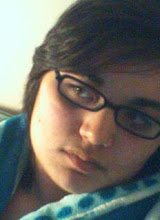We are a nation torn apart at the seams. Family, friends, and lovers fighting against each other for a greater cause. The Trail of Tears was not too long ago, Linda Hogan said in her memoir The Woman Who Watches Over the World, the Japanese containment camps are still haunting the west shores. The cries of race riots in Detroit still shake the brick foundations. And still every day, children are born with this legacy of oppression, freedom, greed, and oppression.
This is why depression is the most over-diagnosed mental illness in the United States. Hogan writes how, even though half-Native American, she can still feel the pain of her people in her veins. Her people were the natives of this land, something we will never be able to understand--only sympathize--and we are the ones who killed them.
"It wasn't me." Someone said once, when I made an off-handed comment about the U.S. taking the Native land, "I wasn't the one who was there."
Perhaps not. But perhaps your great grandparents were. Perhaps your grandfather could have stopped it, but didn't. Aren't we all criminals since we didn't do anything about it? Still aren't doing anything about it.
In chains, they were dragged around in chains! Dark heads bent against the blows meant for evil, the Devil, wicked demons born for nothing but mischief. But the Africans were human, singing and dancing like we all do--try to, now--with the rhythm of their souls, a beat we Americans find hard to hear. Thump thump-thump rat-ta-ta-ta thump thump-thump. And their legs would kick up in the dirt, their voices gay for a moment. Then the crack of a whip would break their perfect world.
And still, during World War II, we sent our own Japanese soldiers into their Native land, had them fight their brothers and sisters, parents, and cousins, and then when they returned we put them into concentration camps. Even after they were released they were unable to find jobs, housing, even restaurants put signs on their front doors reading, "No Japs Allowed."
Ours is a country of fear--of pain, torment, and hypocrites. The past is what haunts us, alludes us, and twists our charity. What is American now? Certainly not being Vegetarian. Or wearing pink when you're a guy. Or learning other languages. McDonald's is American. So is hunting, football, and other forms of crude diet and competition.
A path of constant self-destruction.
Until, we break down.
Beckett, a famous Modernist poet, described life as a waste land we humans are thrust into without knowledge of how we got here or what we're supposed to do. He believes that the usual human response goes two ways; either take it in stride, or don't play the game. Ultimately--
Suicide.
Repenting for our sins, lamenting our mistakes. We care now, too late, and it kills us. A tragic American condition. But we can't say we don't deserve it, couldn't see it happening.
God.
We even fight against ourselves. Things don't get any better, they just scatter and multiply, losing intensity, but growing in quantity. It's not urgent. Help is not needed now. But soon it will be too late to call for help, or to change the angle of momentum. We will implode, and who knows what will happen after that?
We are a nation built on tears. Wavering at the slightest breeze. Biting the smallest insect, afraid of it being bigger, darker, fiercer, better, brighter, gooder...
This is what I feel in my bones. My body seems to say there is no hope now, we have done too much. We have shed too much blood. My blood is not mine anymore; it is for Hogan's people, the African slaves, the Japanese soldiers living now in tombs of ocean salt. I took it away from them long ago, before I was born, but not before I could remember.
We are a nation, and we are crying.
November 05, 2009
Subscribe to:
Post Comments (Atom)


Inspired by Linda Hogan's "Woman Who Watches Over the World" (it), and my friend Emily's comment on how she isn't really proud of being American, this piece is a response to both. I too am not very proud to be American, some of the reasons stated in the piece, but I believe that my friend was being too harsh on the people only born from these troubling times.
ReplyDeleteI accuse the older generations, but since I did not live back then, I do not have a clear view of what transpired. History books don't help us. So, I can only condemn the way history played out--and we, as a nation, did not stop any of these transgressions from happening until well into the mess. Like Hogan, I believe we carry our people's history in our veins, in something psychologically unplacable.